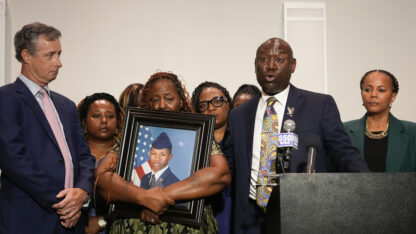Deal Signs ‘Amnesty’ Bill Aimed At Reducing Fatal Overdoses

Georgia Gov. Nathan Deal Thursday signed into law a bill aimed at protecting those who report a drug or alcohol overdose.
The bill protects those who call 9-1-1 to report a drug overdose and who may also have been using drugs from arrest or prosecution. The same applies to those under 21 years old who report an alcohol overdose. With Deal’s signature, Georgia joins at least 17 other states that have passed similar “Good Samaritan Laws.”As heard on the radio
Republican state Rep. Sharon Cooper of Marietta, the bill’s sponsor, hopes people will now make potentially life-saving emergency calls.
“We’ve got to at least help people make the right decision to help somebody else.”
Supporters pushed for the bill after a handful of Georgians died of an accidental overdose, some which they say may have been prevented had friends called for emergency help. Cooper said often people are too scared to call, fearing they’ll face criminal punishment.
“It’s not that people are panicking or so stoned on drugs that they don’t know what they’re doing, because in several instances the people that survive would tell you they discussed it,” Cooper said.
The governor signed the bill into law quietly in his office Thursday morning. It takes effect immediately.
The new law also loosens restrictions on Naloxone, an overdose-reversing drug.
Previously only available to licensed medical personnel, the drug will now be available to first responders, so-called harm reduction agencies or anyone with a prescription.
Critics say easier access could increase the likelihood someone uses drugs like heroin or prescription pain-killers, a criticism Cooper dismisses.
“You’re trying to save a life so there’s a chance of turning somebody’s life around. If you’re dead, there’s no chance,” Cooper said.
Mona Bennett, who heads the Atlanta Harm Reduction Coalition, praised the new law.
Previously, the coalition had been administering the drug illegally.
“This is a huge victory, and we have a vital tool for the community to use to save themselves.
The Atlanta-based Centers for Disease Control and Prevention estimates Naloxone has reversed more than 10,000 overdoses since it was introduced in the mid-90s.
9(MDAxODM0MDY4MDEyMTY4NDA3MzI3YjkzMw004))








